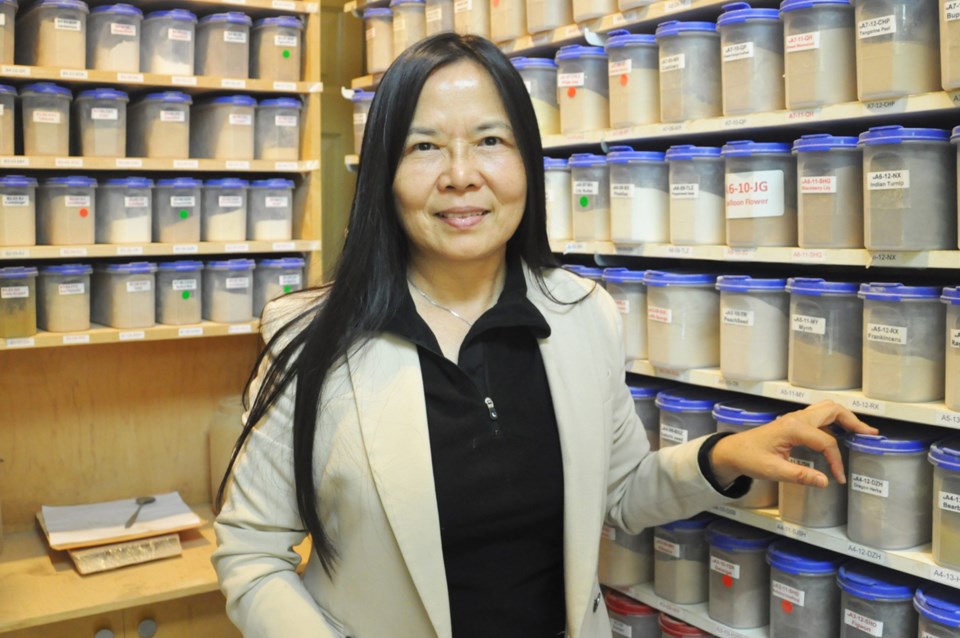Sally Wu learned about the “magic” of herbs from her mom when she was a little girl in the Taiwan countryside. Now she is helping thousands of people in Richmond get healthier using traditional herbal treatments.
Her clinic, Natural & Organic Healing Clinic, was nominated for Small Business BC Awards recently. Although not making it to the final, Wu’s work has been recognized by many people in the community.
“I grew up in a village where we only had two doctors, not enough at all,” Wu told the Richmond News.
“I remember my mom would make juice with herbs and treat our neighbours with that, including a kid who was affected with pneumonia. I thought, ‘wow, it is magic.’”
Having had family members pass away despite receiving conventional medical treatment, Wu realized the potential harmful side effects of it and its limitations in solving the root cause of a disease.
Wanting to find more ways to heal the body, Wu obtained her Oriental Medicine Doctor Diploma at the Alternative Medicine College of Canada and a Chinese medicine PhD in China. Now she is a member of the Canadian Herbalists Association of BC.
“The philosophy of natural treatment is that our body is wholistic; all the parts are inseparable,” said Wu.
When we have problems in one part, we need to take a look at all the connections in our body, she added.
“My job is to find the root cause, and use the power of nature to heal it.”
The key of herbal treatment, according to Wu, is to achieve a balance of the body, letting every part do its function— not too much and not too little.
“If a part is too active, we need to calm it down; if it’s too quiet, we need to activate it,” said Wu.
She has more than 300 types of herbs in her clinic, which are divided by property and taste.
“For example, spicy herbs will help promote blood circulation, letting go of the excessive waste the body doesn’t need; sour herbs, meanwhile, help keep important substances in the body,” said Wu.
She added that some herbs help raise the “qi” (energy) in the body, such as Jiegeng, which can help push up phlegm out of the lungs. On the other hand, food like almonds helps descend the “qi” to relieve asthma.”
Wu has her own way of accessing her patients, through observation and description.
“Our own body and feelings are the most trustworthy,” said Wu.
“Tests can lie sometimes. You may feel unwell but the test says that you are OK; or you are close to getting a disease but you are not really sick yet, so the test won’t tell you.
“But when there is a disease, it might be too late.”
Wu said people’s appearance tells a lot of about their health.
“Eyes are connected to different parts of the body. The colour, humidity, shape...all show signs towards your health state,” said Wu.
“The face is also a reflection of your health. If someone’s face is too red, that’s a sign that they may have hypertension.
But of course we need to look at all the symptoms, as well as his lifestyle, diet, mood and even something like the weather.”
She added that individual’s health is made up of the natural constitution and the lifestyle. Even the patients’day of birth and the season they were born in are influencing factors for the body constitution.
Wu said, it is difficult to graduate from a medical school, but for herbalists, the real challenge starts after they graduate.
“Every patient is different. We need to get to know everyone very well to come up with the unique treatment that suits individuals.”



